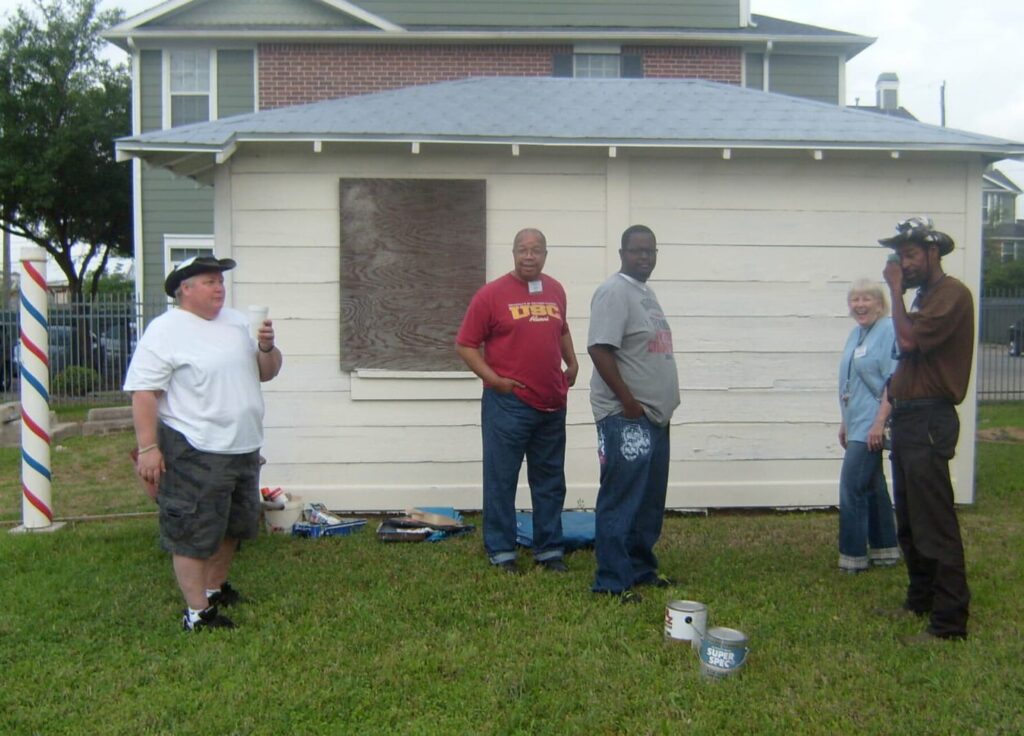Freedmen’s Town Museums Houston
a part of Rutherford B.H. Yates Museum, Inc.
Archaeology, Education and Preservation
Workman's Cottage - 1404 Victor Street

Black barbershops and beauty shops in communities like Freedmen’s Town were pillars of community strength and organizational strongholds against racial discrimination.
This wood-frame, “workman’s cottage” also sits on the former homestead of Antonio Tomasino, Jr., an Italian grocer. It was built circa 1924 by the same prominent African-American carpenter and contractor. This cottage typifies the small, one-story, one or two-room commercial buildings constructed in the side or front yards of primary structures in working class Houston neighborhoods of the late nineteenth and early twentieth centuries. Though its dimensions are small, this workman’s cottage served as a rental property for Blacks and may have been one of the earliest barber shop locations in Freedmen’s Town. The building was later used as a beauty shop in the 1960s
Black beauty shops and barbershops in communities like Freedmen’s Town became pillars of community strength and organizational strongholds in a Jim Crow environment.
The cottage was sold to the RBH Yates Museum in 2005, and has several designations: a contributing historic structure in the 1985 Freedmen’s Town National Register District; City of Houston Protected Landmark; and UNESCO 2019 “Site of Memory” International Slave Route Project. Finally, this cottage is the only remaining commercial structure of its type in Freedmen’s Town. It will function as a barbershop and beauty shop house museum.
UNESCO Sites of Memory Slave
Two of R.B.H.Y. Museum’s historic homes, the Workman’s Cottage (aka Barbershop) at 1404 Victor St. and the Rev. Ned Pullum and Emma Edding-Pullum landmark home at 1319 Andrews St., have been designated as Sites of Memory associated with UNESCO’s Slave Route project. Launched in 1994, the international and inter-regional project The Slave Route: Resistance, Liberty, Heritage addresses the history of the slave trade and slavery through the prism of intercultural dialogue, a culture of peace and reconciliation. It endeavors to improve the understanding and transmission of this human tragedy by making better known its deep-seated causes, its consequences for societies today, and the cultural interactions born of this history.
Freedmen’s Town Museums Houston
Museum visits are by appointment only 713-739-0163 | information.ftm@gmail.com
Stay in the Know
